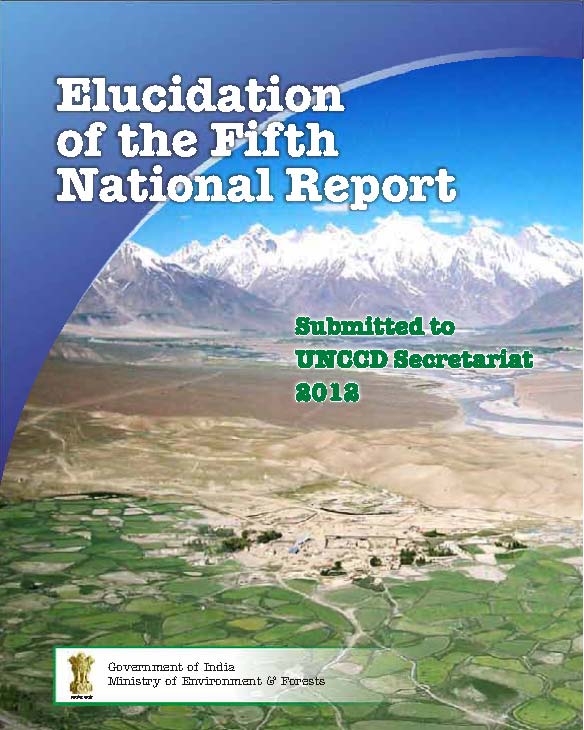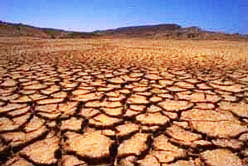India’s engagement with UNCCD


Combating DLDD requires interventions in form of Preventive and Curative Measures. Preventive measures include adopting Sustainable Land Management (SLM) practices that can ensure sustainable productivity of land resources and; food, water and livelihood security for present and future generations. Curative measures involve undertaking restoration and reclamation interventions on degraded lands and subsequent SLM of reclaimed land resources.
As a party to the Convention, the Country Parties are obligated to submit National reports to UNCCD periodically. Till date, India has submitted 6th National Reports. India’s Seventh National Report will be due for submission in 2016. The country parties are required to submit the reports every 2 years against the achievements of the UNCCD Operational Objectives which are reflected in performance indicators. The reporting against Strategic Objectives reflected through impact indicators happened for the first time in 2012 and is required to be repeated at 4 year interval. After ratification in 1996, India prepared its National Action Programme (NAP) to Combat Desertification and sent it to the UNCCD Secretariat in 2001. NAP 2001 provides an overview of the status of natural resources in the country, the status and impacts of desertification, measures under implementation, and in particular, the initiatives taken for combating desertification. India is also preparing its New national Action Programme to Combat Desertification (NNAP-CD) keeping in view (a) The 10 year (2008-2018) Strategy of UNCCD (Decision 3/COP 8), (b) the fact that India has already undertaken a number of schemes and programs in the recent past to address the issue of DLDD and (c) the aspirational goal of achieving Land Degradation Neutrality.
The need for coordinated efforts by all concerned Ministries and Departments for preparing the proposed NNAP and orchestrating national reporting against defined indicators can hardly be overemphasized.
For more information visit: http://www.unccd.int/en/Pages/default.aspx
National Action Programme to Combat Desertification
National Action Programme 2001 (1.8 MB)
(1.8 MB)
India’s New National Action Programme to Combat Desertification (NNAP-CD) aligned with the UNCCD 10 Year Strategy is currently under preparation.
National Reports submitted to UNCCD
| Sl. No. | Title |
|---|---|
| 1. | India’s National Report 2018 submitted to UNCCD (466 KB) (466 KB) |
| 2. | India’s Sixth National Report, 2014 (683 KB) (683 KB) |
| 3. | Elucidation of India’s Fifth National Report, 2012 (12.0 MB) (12.0 MB) |
| 4. | India’s Fifth National Report, 2012 (1.54 MB) (1.54 MB) |
| 5. | Report 2010, Elucidation (8.7 MB) (8.7 MB) |
| 6. | Report 2006 (459 KB) (459 KB) |
| 7. | Report 2002 (121 KB) (121 KB) |
| 8. | Report 2000 (170 KB) (170 KB) |
Roster of Experts
 (184 KB)
(184 KB)The UNCCD Secretariat maintains and manages the Roster of Independent Experts based on nominations received from Parties, taking into account the need for a multidisciplinary approach and broad geographical representation.
















